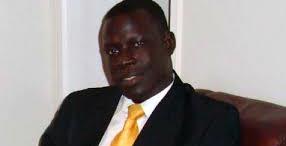A South Sudanese political analyst has criticized South Sudan government’s plan to deduct one day’s pay from the salaries of all civil servants to support implementation of the peace deal.
Speaking to Radio Tamazuj in an interview on Monday, James Okuk, a political science professor at the University of Juba said civil servants’ salaries can hardly sustain them for two days.
“This is a wrong decision and the government should retract it. The right thing is to get money from oil share and deposit it into the peace implementation’s account,” said Okuk.
He proposed that government should borrow loans from any source.
“They are a government and they have the capacity of borrowing money, this is the right thing to do,” said the analyst.
Okuk wondered how a government, unable to pay its civil servants for months, could still propose plans to implement salary deductions.
The South Sudanese government said it approved more than $280 million (about SSP 44 billion), as its peace implementation budget.
The analyst, however, observed that the money to be cut from the civil servants’ salaries will not do any significant push for the peace implementation process. He advised the government to reduce operational expenses to raise funds for the peace implementation.
“Expense of a single trip of a vice president to any country can pay all civil servants in the country. So why don’t they cut down this kind of unnecessary travels and stop buying expensive cars and use the money for peace implementation,” he stressed.
Okuk expressed fears civil servants’ performances could reduce, if government insists on its decision. “This might even affect the peace implementation process,” he said.
The South Sudanese intellectual emphasized on the need for government officials and army generals to allow funds be used to support the peace accord.
Meanwhile, the Center for Peace and Justice (CPJ), a South Sudanese rights entity, also said it was a wrong decision for national pre-transitional committee and council of ministers to propose salary reductions without proper consultations.
“Cutting someone’s salary has to be regulated, not only the council of ministers or any committee can decide and cut salaries to fund the agreement,” said CPJ’s executive director, Tito Anthony.
Tito, in a statement extended to Radio Tamazuj on Tuesday, said South Sudan government and the opposition groups should mobilize funds from elsewhere since the violent civil war was not started by civil servants.
“The pay cut is not realistic because it is not clear on what they will spend the money. As of now, the little money they got is being spent on renovation of their houses,” he stressed.
In September last year, South Sudanese arch-foes signed a revitalized peace agreement, aimed at ending the devastating civil war that killed tens of thousands of people and displaced millions.
However, after the signing of the peace deal, the international community appealed to South Sudan government to make financial commitments towards the implementation process before they could chip in.




